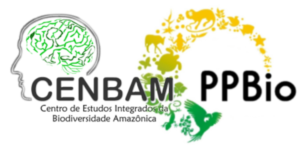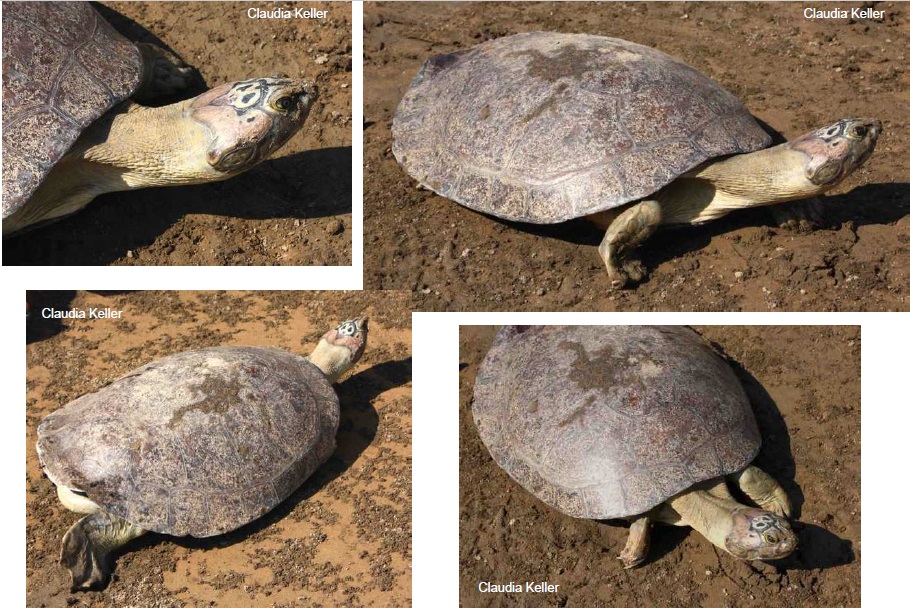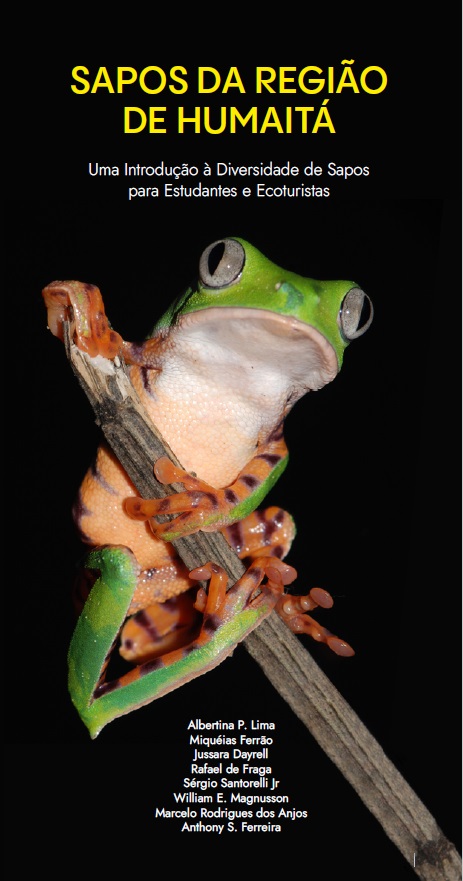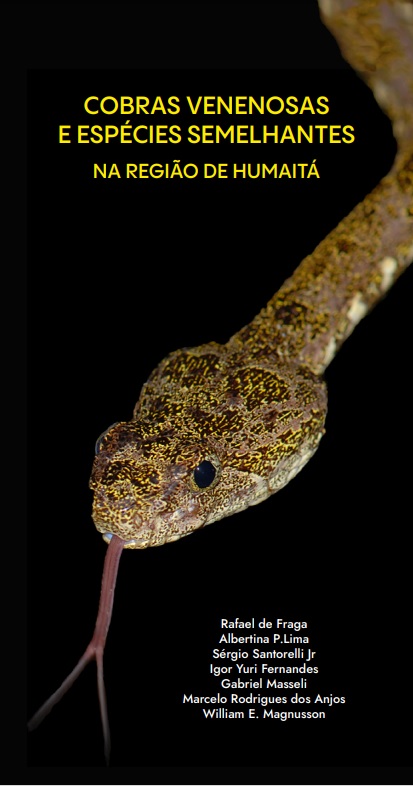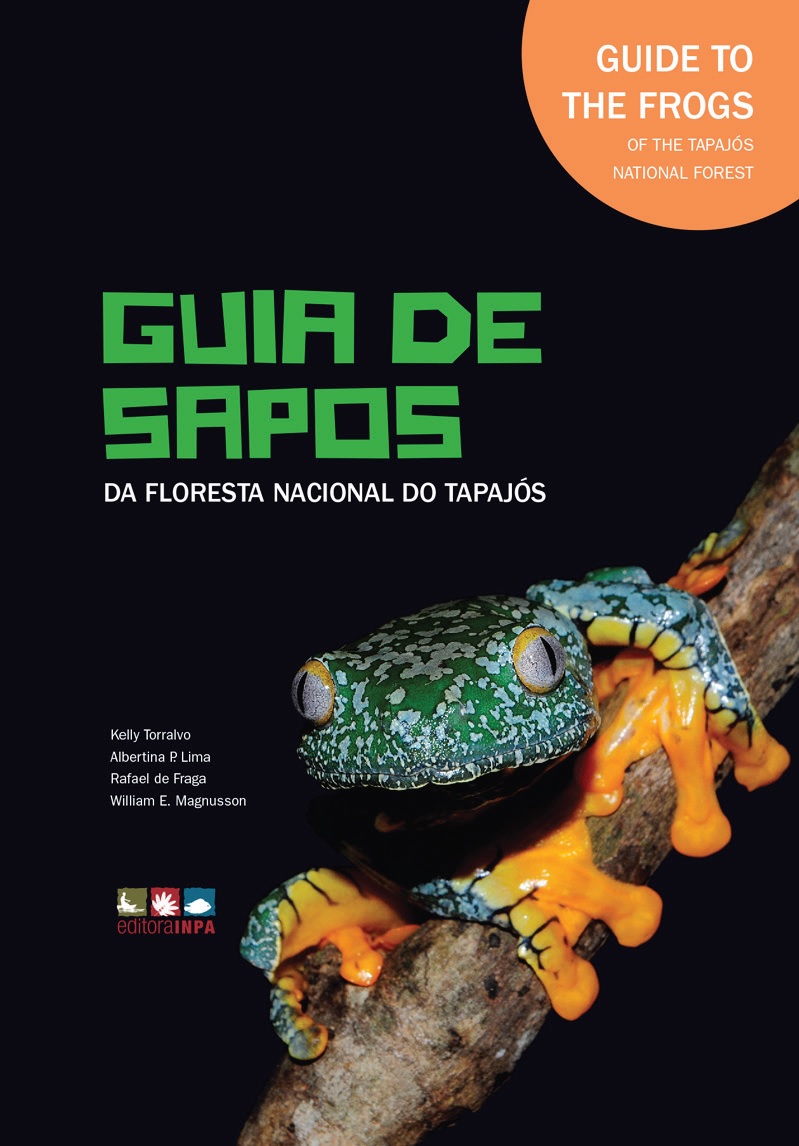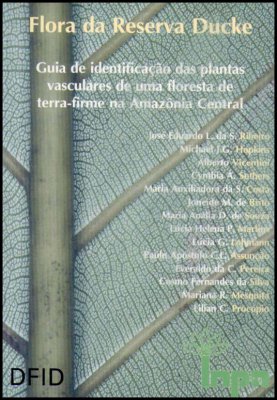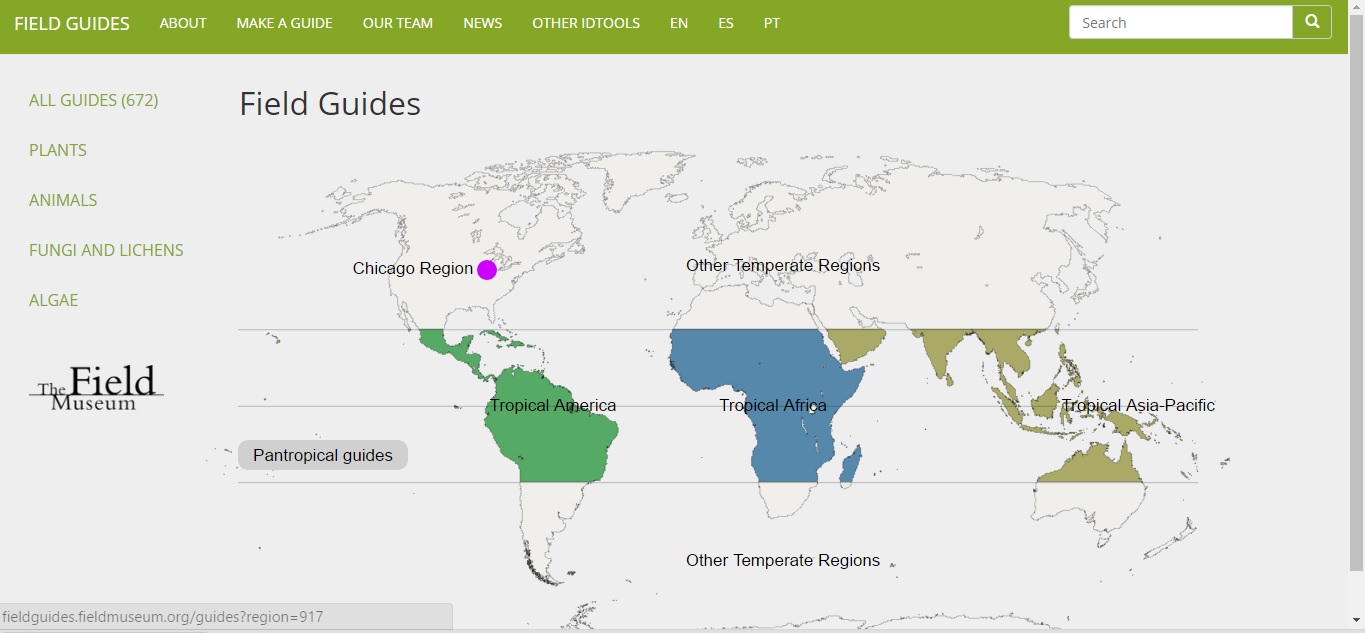Languages
Species Identification Guides
Taxonomic identification is a key step in studies of biodiversity. For relatively well-known groups, PPBio promotes the production of species identification guides in a colorful format with excellent quality graphics written for a mixed audience, made up of scientists, students, tourists and others. The introductory sections, which occupy much of the content of the books are complete enough to be used by high school students in school projects. These guides are available for free in electronic format.
However, identification can be very time consuming to mega-diverse groups and little studied. For these, it is necessary to work with morphotypes in inventories, to the identification or description of the species. Therefore, the PPBio Portal Amazon offers virtual guides of various taxonomic groups being studied by researchers Program. These guides are preliminary and should not be used for definitive identifications. They are available to stimulate the communication between researchers and experts who can receive the material in the future, and to enhance communication among researchers doing surveys in different areas.
GUIDES NOW PUBLISHED (PDF files):
including a range expansion for Podocnemis sextuberculata Cornalia, 1849
|
Tigaiti isahoiabai aopekoi aaibakoi igabeso aaga ai megue nai Maita
New ways to understand Amazonian biodiversity in the Mura-Pirahã language.
Translator: José Augusto Pirahã Kaa’aoi, Aldeia Maagaguii, Humaitá, Amazonas, Brazil.
Graphic design and layout: Yurie Yaginuma
Authors: Rafael de Fraga, Albertina Lima, Sergio Santorelli Junior, Igor Yuri Fernandes, Gabriel Masseli, Marcelo Rodrigues dos Anjos, William E. Magnusson.
Manaus, Authors’ Ed., 2024
|
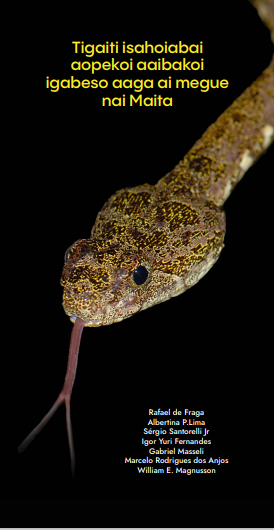 |
||
|
In this expedition, we explored the remote regions of the Amazon interior in search of new species of frogs. Over the course of 40 days, we focused our searches in the municipality of Eirunepé, along stretches of the Juruá, Eiru, and Gregório rivers. The name Eirunepé comes from the Tupi language, meaning "path of black honey," through the combination of eíra (honey), un (black, dark), and (a)pé (path, road). The municipality covers an area of 14,966 km² and is located in the southeast of Amazonas. Editorial Coordination and Organizers: Albertina P. Lima and Jussara S. Dayrell Editorial Project: Albertina P. Lima Layout Design: Yurie Yaginuma |
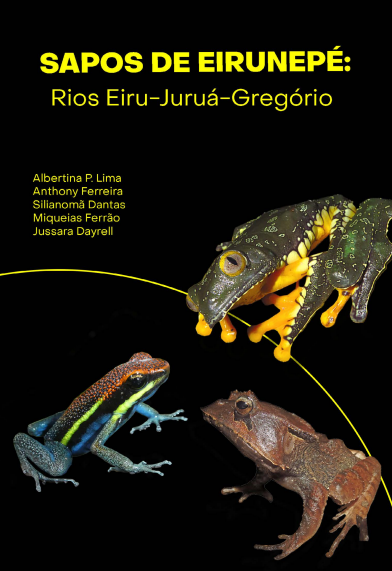 |
||
|
The main objective of this book is to demystify the most common beliefs about bats and show their diversity of species, forms and colors. In a didactic and simplified language, readers will be able to know the species of bats that occur along BR-319, understand what they feed on, their importance to the environment, the ecological services they perform and, mainly, that the threats that bats represent for the local population exist more in the collective unconscious than in reality itself. We hope you enjoy the book and share the information contained in it.
We wish everyone a great reading!
Authors:
Daniela Bôlla, Sergio Santorelli Junior, Rodrigo Marciente, Luana da Silva Biz, William E. Magnusson, Paulo Estefano D. Bobrowiec
|
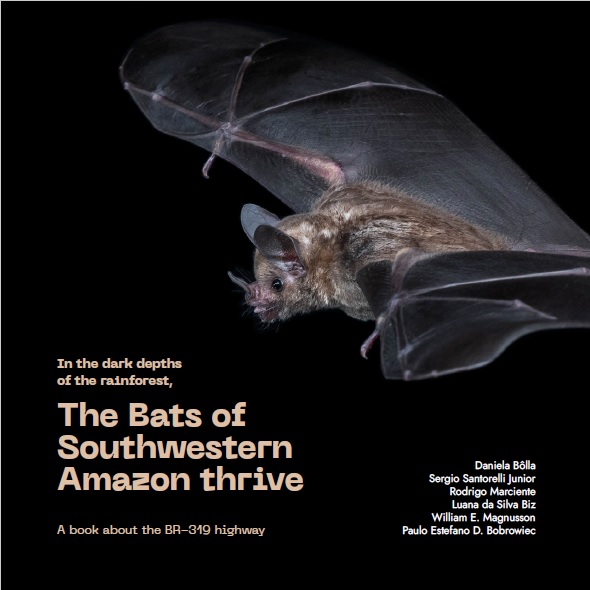 |
||
|
New paths to understand Amazonian biodiversity in Mura-Pirahã language. Translator: José Augusto Pirahã Kaa’aoi, Aldeia Maagaguii, Humaitá, Amazonas, Brazil.
Project design and layout: Yurie Yaginuma
Authors: Albertina P. Lima, Miquéias Ferrão, Jussara Dayrell, Rafael de Fraga, Sergio Santorelli Junior, William E. Magnusson, Marcelo Rodrigues dos Anjos, Anthony S. Ferreira.
|
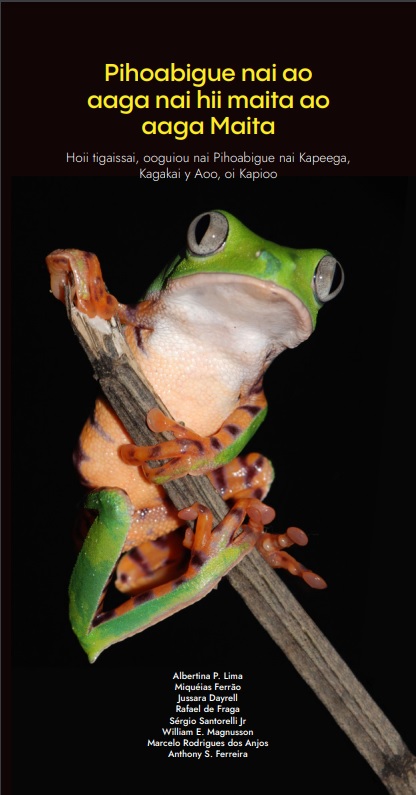 |
||
Guides of Humaitá |
|||
|
Pira Yae Rekwarupiva " EA - Guia Ilustrado dos Peixes de Igarapés da BR-319 - Uma introdução à biodiversidade - tradução para a língua indígena Tupi-Kagwahiva. Lis F. Stegmann, Jansen A. Zuanon, Sergio Santorelli Junior, William E. Magnusson, Igor Hister Lourenço, Douglas Bastos, Fernando P. Mendonça, Marcelo Rodrigues dos Anjos. |
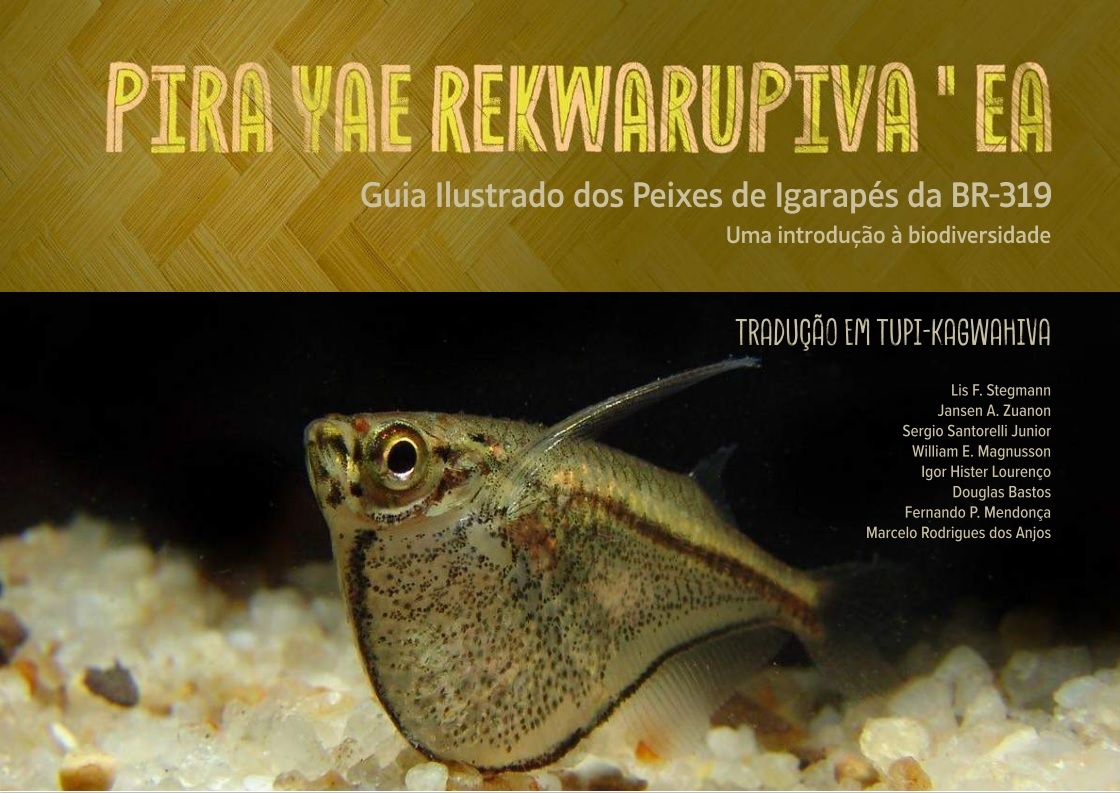 |
||
|
Illustrated Guide to Stream Fish on BR-319 Lis F. Stegmann, Jansen A. Zuanon, Sergio Santorelli Junior, William E. Magnusson, Igor Hister Lourenço, Douglas Bastos, Fernando P. Mendonça, Marcelo Rodrigues dos Anjos. The objective of this guide is to offer a brief introduction to the biodiversity of stream fish in the Purus-Madeira interfluve, their characteristics and curiosities. Through it you will be able to know how many fish species have been recorded along BR-319, what they feed on and how they live. We hope that this guide will arouse your curiosity and encourage you to learn more about the rich biodiversity of the region and the importance of preserving it. |
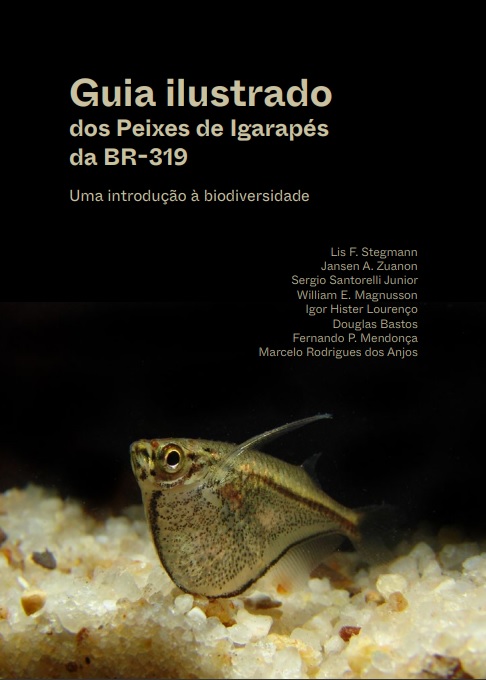 |
||
Guide to the frogs of the tapajós national forest
Kelly Torralvo, Albertina Pimentel Lima, Rafael de Fraga, William E. Magnusson. - Manaus: Editora INPA, 2021.
Amazonian Fungi
The plants of Reserva Ducke
This is a collection of pdf files which will download in a rar (Flora Ducke).
It is written in Portuguese.
|
|
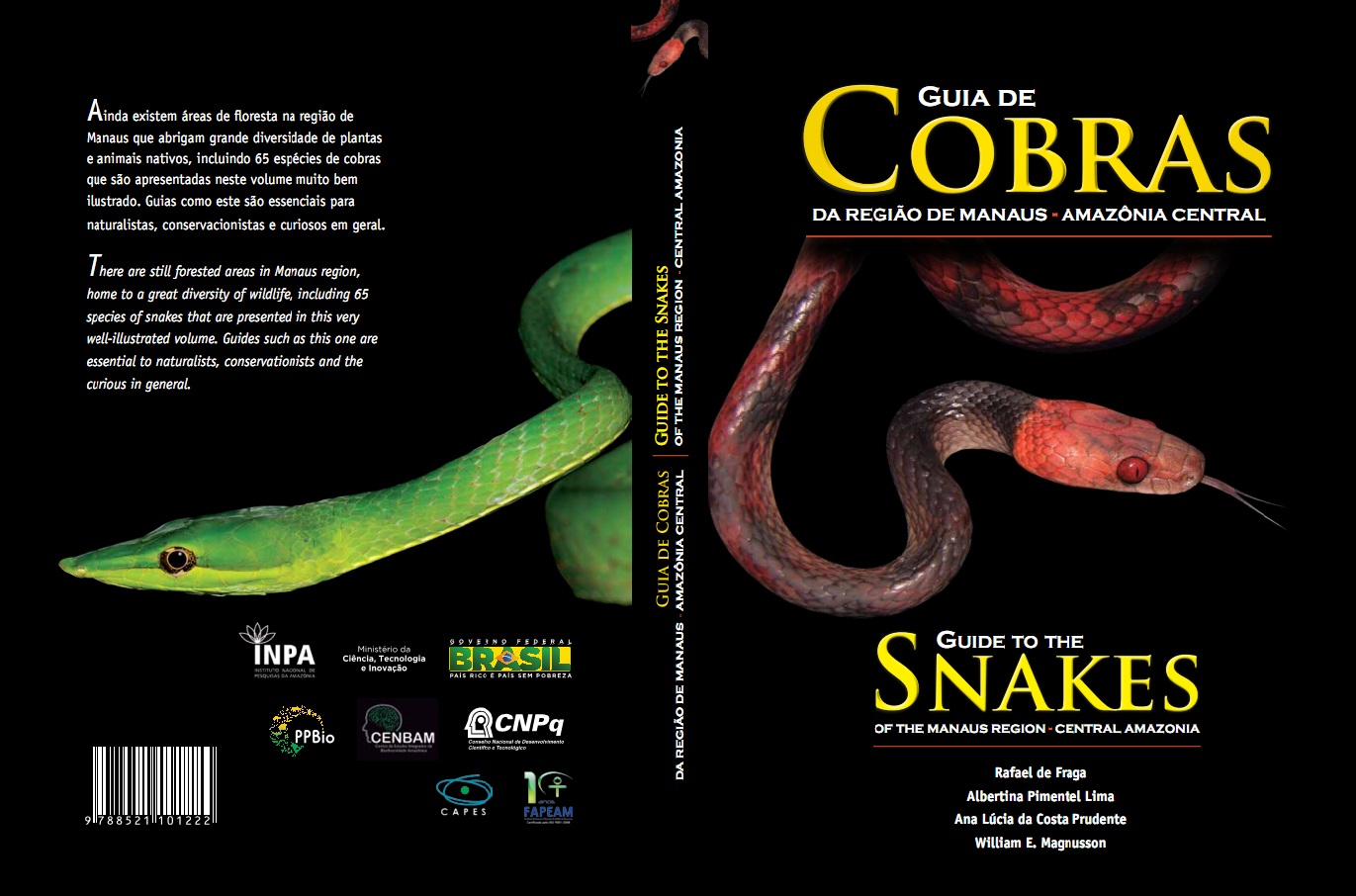 |
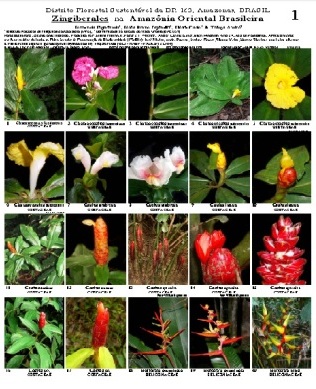 |
|
|
Illustrated Guide and Leaf Architecture Manual for Timber Species in the Western Amazon Obermuller, F. A., Daly, D., Oliveira, E. C., Polary, H., Oliveira, H. M., Souza, L. & SILVEIRA, M. Guia Ilustrado e Manual de Arquitetura Foliar para Espécies Madeireiras da Amazônia Ocidental. Rio Branco: G.K.Noronha, 2011. v. 1. 101 p. |
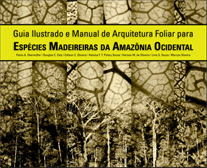 |
|
Macrophytes of the PPBio Roraima
This guide is the result of a 2-year research project conducted by the authors in collaboration with the Federal University of Roraima. |
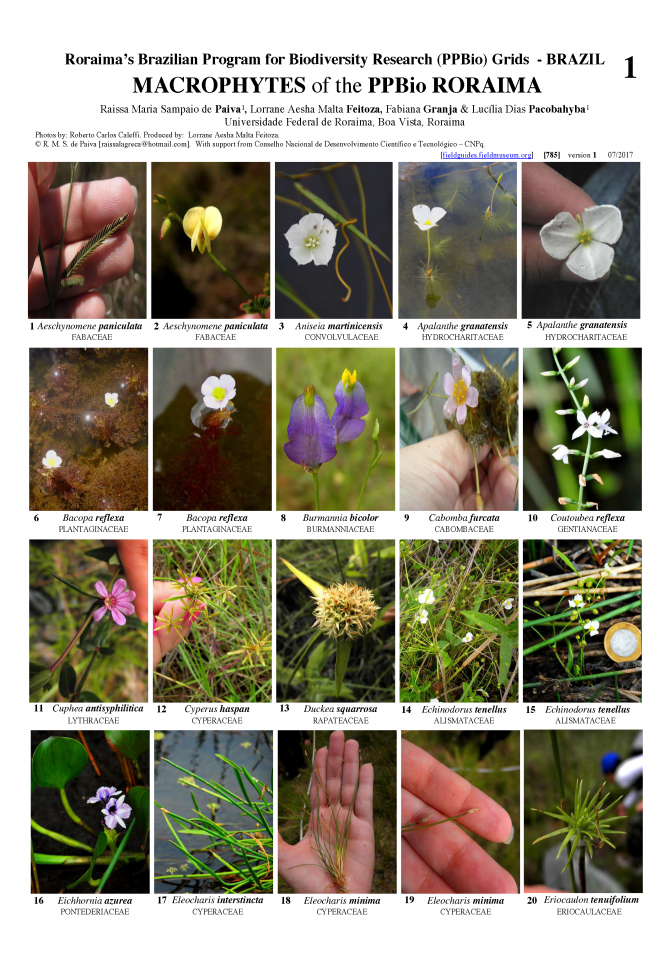 |
|
Costa, F. R. C., Espinelli, F. P. & Figueiredo, F. O. G. Guia de Zingiberales dos sítios PPBio na Amazônia Ocidental Brasileira. Manaus: Attema Design Editorial Ltda, 2011. v. 1. 284 p.
|
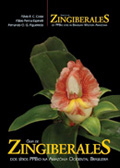 |
|
Cavalcante, C. O., Barbosa, R. I. & Flores, A. S. 2009. Leguminosas (Fabaceae) Herbáceas – Grades de Savana do Programa de Pesquisas em Biodiversidade (PPBio), Roraima, Brasil. Field Museum Guide Plants – Web Version. |
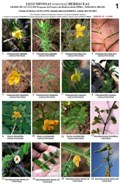 |
|
Guide to the Frogs of Reserva Ducke - Central Amazon (digital version updated, with movies of species) Lima, A. P. ; Magnusson, W. E. ; Menin, M. ; Erdtmann, L. K ; Rpdrigues, D. J ; Keller, C. ; Hödl, W. Guia de Sapos da Reserva Adolpho Ducke: Amazônia Central. Manaus: Attema Design Editorial Ltda, 2008. 2ed. 177 p. This is an electronic version of the new edition of the Frogs Guide of Reserva Ducke. This book is accompanied by a folder containing movies with the corner of each species, and this folder should be located in the same folder as the PDF file. The videos can be accessed in PDF file through the video camera icon in the description of each species. Unless otherwise indicated, the videos were filmed by Karl Mokross. |
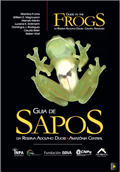 |
|
Guide to the Frogs of Reserva Ducke - Central Amazon
Lima, A. P., Magnusson, W. E., Menin, M., Erdtmann, L. K., Rpdrigues, D. J., Keller, C. & Hödl, W. Guia de Sapos da Reserva Adolpho Ducke: Amazônia Central. Manaus: Attema Design Editorial Ltda, 2006. 168 p. |
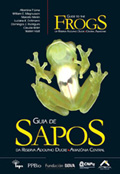 |
|
Guide to the Lizards of Reserva Ducke
Vitt, L. J., Magnusson, W. E., Avila-Pires, T. C. S. & Lima, A. P. Guia de Lagartos da Reserva Adolpho Ducke, Amazônia Central.. Manaus: Attema Design Editorial Ltda, 2008. v. 1. 176 p.
|
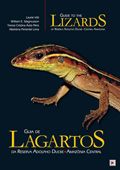 |
|
Zuquim, G., Costa, F. R. C., Prado, J. & Tuomisto, H. Guia de identificação das samambaias e licófitas da REBIO Uatumã, Amazônia Central. Manaus: Áttema Design Editorial, 2008. 321 p.
|
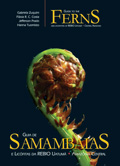 |
|
Guide to the Marantaceae of Reserva Ducke and Rebio Uatumã - Central Amazon
Costa, F. R. C., Espinelli, F. P. & Figueiredo, F. O. G. Guia de idntificação das Marantáceas da Reserva Ducke e Reserva biológica do Uatumã. Manaus: Áttema Design Editorial, 2008. 154 p.
|
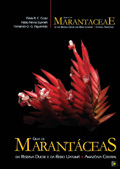 |
|
Ferns of Uatumã Biological Reservation (in English)
Zuquim, G. & Prado, J. Pteridophyta of Uatumã / Uatumã Biological Reserve, Central Amazonia, BRASIL. Chicago: The Field Museum of Chicago, 2008 (Material didático - guia fotográfico). |
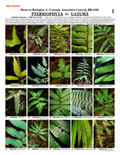 |
|
Guide to the ant genera in Brazil (in Portuguese) Baccaro, Fabrício B.; Feitosa, Rodrigo M.; Fernandez, Fernando; Fernandes, Itanna O.; Izzo, Thiago J.; Souza, Jorge L. P. de; Solar, Ricardo. Manaus: Editora INPA, 2015. 388 p. |
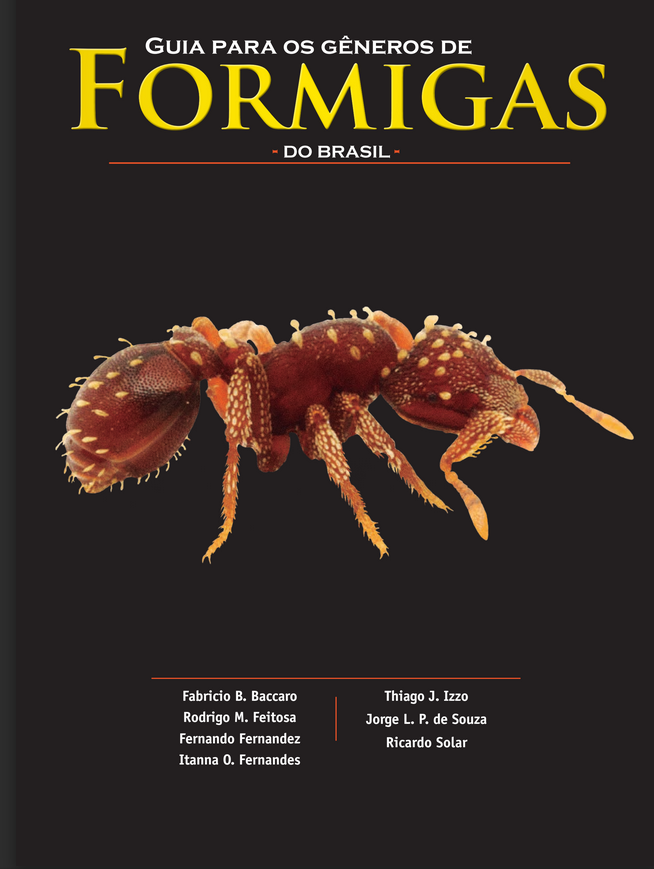 |
|
Guide to the Identification of Ants. Key to the main subfamilies and genera of ants. Baccaro, F. B. Chave para as principais Subfamílias e Gêneros de formigas (Hymenoptera: Formicidae). 2006. (Desenvolvimento de material didático ou instrucional - Apostila). |
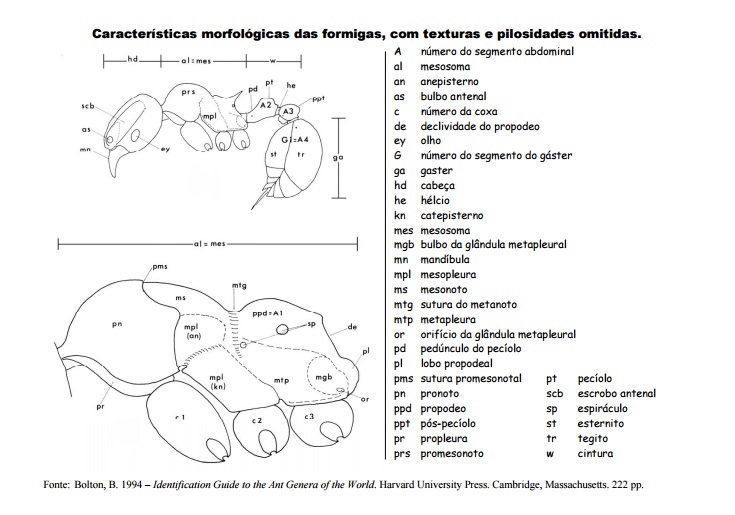 |
|
FREITAS, R. O. & CARRENHO, R. Guia Digital de Fungos Micorrízicos Arbusculares da Reserva Florestal Adolpho Ducke e Reserva do PDBFF. Manaus, 2013.
|
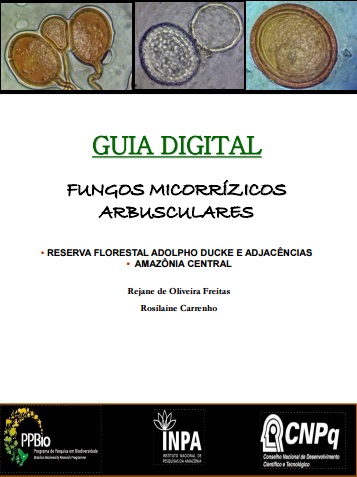 |
|
BRAGA-NETO, R. Manaus, 2007.
|
 |
|
Uma experiência para o monitoramento de fauna em Unidades de Conservação |
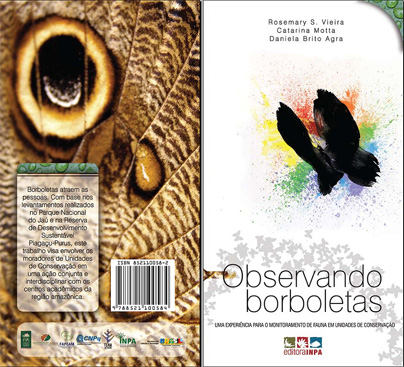 |
|
|
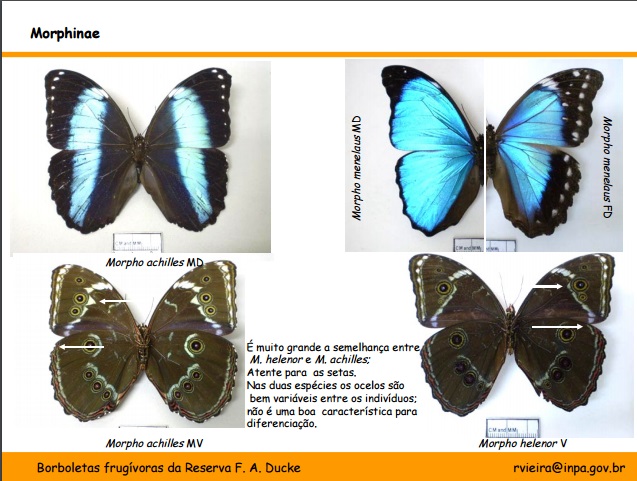 |
|
Guide to the Palms of BR-319 EMILIO, T. Guia digital Palmeiras da BR-319 2008 (Guia de campo).
|
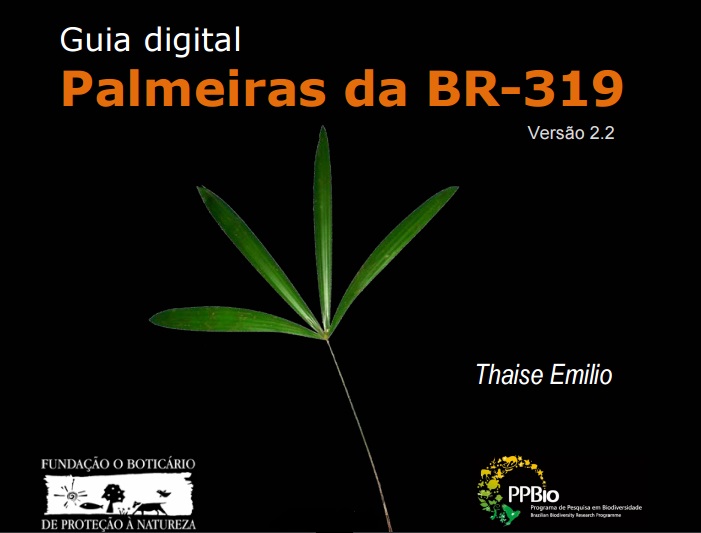 |
Online key for Fern identification of Uatumã - Central Amazon
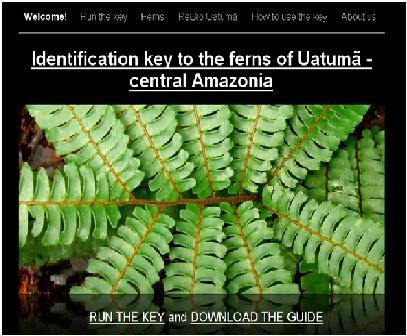
In this expedition, we explored the remote regions of the Amazon interior in search of new species of frogs. Over the course of 40 days, we focused our searches in the municipality of Eirunepé, along stretches of the Juruá, Eiru, and Gregório rivers. The name Eirunepé comes from the Tupi language, meaning "path of black honey," through the combination of eíra (honey), un (black, dark), and (a)pé (path, road). The municipality covers an area of 14,966 km² and is located in the southeast of Amazonas.
